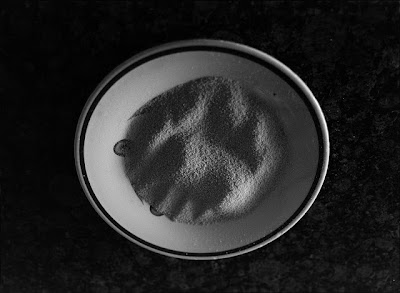Look beneath your lid some morning,
See those things you didn't quite consume
The world's a can for
Your fresh garbage . . .
I loved
that song when I first heard it in 1968, on the compilation LP “The Rock
Machine Turns You On”[3] – Jay
Ferguson’s distant, lost-sounding, disillusioned tenor voice, perfect for the teenager
in turmoil.
It’s still
relevant, and the biggest rubbish bin of all is the sea. A lot of this is
plastic, not only on shores, where it represents 60% – 80% of all litter
(Derraik, 2002[4])
but in vast swirling oceanic garbage patches[5] -
and on the sea bed: in 1995 92% of debris on the floor of the Bay of Biscay was
plastic[6]. A
more recent article by Greenpeace says 70% of plastic litter sinks, and there
is an estimated 600,000 tons of it at the bottom of the North Sea.[7]
The debris
is unsightly, and can strangle or fill the stomachs of marine wildlife. It’s also
toxic, so developing biodegradable versions doesn’t solve the problem – indeed,
it could make it worse, since dissolved plastic is much harder to find and nearly
impossible to remove.
James
Higham posts a picture[8] of
a cleanup device still under development. It’s a giant static filter that the
inventor, Boyan Slat, hopes will trap surface garbage but allow plankton to pass
safely through; work continues.[9]
But even if it works perfectly, that still leaves the other, sunken 70% to deal
with. Yet again, techno-fixes have limitations.
I can remember
when we had shopping baskets and produce wasn’t shrink-wrapped. Will those days
ever come again?
[1] http://www.metrolyrics.com/fresh-garbage-lyrics-spirit.html
[2] http://youtu.be/k7MQ5rxUZsc
[3] http://en.wikipedia.org/wiki/The_Rock_Machine_Turns_You_On
[4] http://www.caseinlet.org/uploads/Moore--Derraik_1_.pdf
[5] http://en.wikipedia.org/wiki/Category:Marine_garbage_patches.
There are in fact more than three of them, as the articles go on to explain.
[6]
Derraik, Table 1 (see note 4).
[7] http://www.greenpeace.org/international/en/campaigns/oceans/pollution/trash-vortex/
[8] http://nourishingobscurity.com/2013/09/09/plastic-gobbler-of-the-seven-seas/comment-page-1/#comment-221633
[9] http://www.boyanslat.com/plastic5/
All original material is copyright of its author. Fair use permitted. Contact via comment. Nothing here should be taken as personal advice, financial or otherwise. No liability is accepted for third-party content, whether incorporated in or linked to this blog; or for unintentional error and inaccuracy. The blog author may have, or intend to change, a personal position in any stock or other kind of investment mentioned.
















